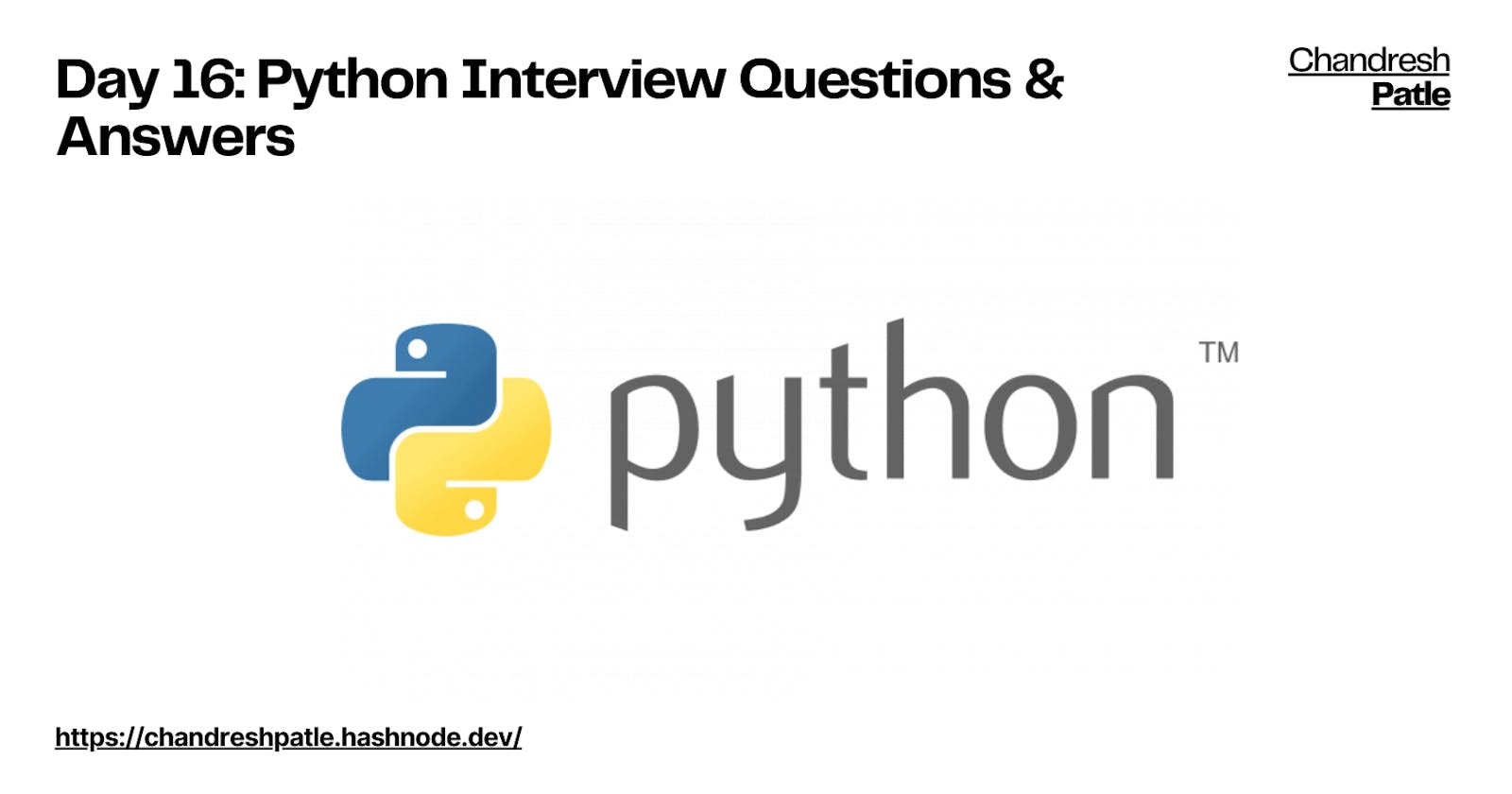Day 16: Interview Questions (Beginner and Intermediate) and Real-World Python in DevOps
🔶 Introduction
Welcome to Day 16 of our Python for DevOps series! Today, we'll dive into some interview questions for both beginners and intermediate Python developers. Additionally, we'll discuss a real-world example of using Python to solve a DevOps challenge.
🔶 Real-World Example: Solving DevOps Challenges with Python
In the course of our Python for DevOps series, we've tackled various projects, including GitHub Webhooks, JIRA integration, and File Operations. These projects have provided practical insights into applying Python in a DevOps context.
🔶 GitHub Webhooks
GitHub Webhooks allow you to receive real-time information about repository events. We explored how to set up a webhook to trigger actions in response to events like code pushes or issues being created.
🔶 JIRA Integration
Integrating Python with JIRA enables automation in issue tracking. For example, we created a Python script triggered by GitHub comments to automatically generate JIRA tickets, streamlining the development workflow.
🔶 File Operations
Python's file handling capabilities are crucial in DevOps. We learned how to read and write files, manipulate directory structures, and perform operations on file contents.
🔶 Challenges Faced in Python for DevOps
Overcoming Challenges
While working on these projects, you might have faced challenges. It could be dealing with API rate limits, handling authentication securely, or addressing unexpected changes in APIs. Overcoming these challenges is a key aspect of real-world application development.
🔶 Securing Your Python Code and Scripts
Ensuring the security of your Python code is paramount. Here are some practices:
Handling Sensitive Information:
Use input variables, command line arguments, or environment variables for sensitive information like API keys.
Avoid hardcoding sensitive data directly into your scripts.
🔶 Python Interview Questions
Let's move on to some interview questions for both beginners and intermediate Python developers.
1. Explain the Difference Between Mutable and Immutable Objects
In Python, mutable objects can be altered after creation, while immutable objects cannot be changed once created. For instance, lists (mutable) vs. tuples (immutable).
2. Differentiate Between List and Tuple in Python
Lists are mutable and commonly used for collections that can change, while tuples are immutable and used for fixed collections.
3. Explain the Use of Virtualenv
Virtualenv creates isolated Python environments, allowing different projects to use different package versions without conflicts.
4. What Are Decorators in Python?
Decorators modify the behavior of functions. They take a function as an argument, add functionality, and return another function without modifying the original function's code.
5. How Does Exception Handling Work in Python?
Exception handling in Python involves try, except, else, and finally blocks to gracefully handle errors and exceptions.
6. What's the Difference Between append() and extend() for Lists?
append() adds a single element to the end of a list, while extend() adds multiple elements by appending elements from an iterable.
7. Explain the Use of Lambda Functions in Python
Lambda functions are anonymous functions used for short tasks, providing a concise way to write functions.
8. What Are the Different Types of Loops in Python?
Python has for loops and while loops for iterating through sequences or performing repetitive tasks.
9. Explain the Difference Between == and is Operators
== compares values, while is checks if two variables reference the same object in memory.
10. What Is the Use of the pass Keyword?
The pass keyword is a no-operation placeholder used when a statement is needed syntactically, but no action is required.
11. What Is the Difference Between Global and Local Variables?
Global variables are defined outside functions and can be accessed anywhere, while local variables are limited to the scope of the function where they are defined.
12. Explain the Difference Between open() and with open() Statement
open() is used to manually open and close files, while with open() is a context manager that automatically handles file closure, ensuring clean-up even if exceptions occur.
Note: I am following Abhishek Verraamalla's YouTube playlist for learning.
GitHub Repo: https://github.com/Chandreshpatle28/python-for-devops-av
Happy Learning :)
Stay in the loop with my latest insights and articles on cloud ☁️ and DevOps ♾️ by following me on Hashnode, LinkedIn (https://www.linkedin.com/in/chandreshpatle28/), and GitHub (https://github.com/Chandreshpatle28).
Thank you for reading! Your support means the world to me. Let's keep learning, growing, and making a positive impact in the tech world together.
#Git #Linux Devops #Devopscommunity #PythonforDevOps #python

